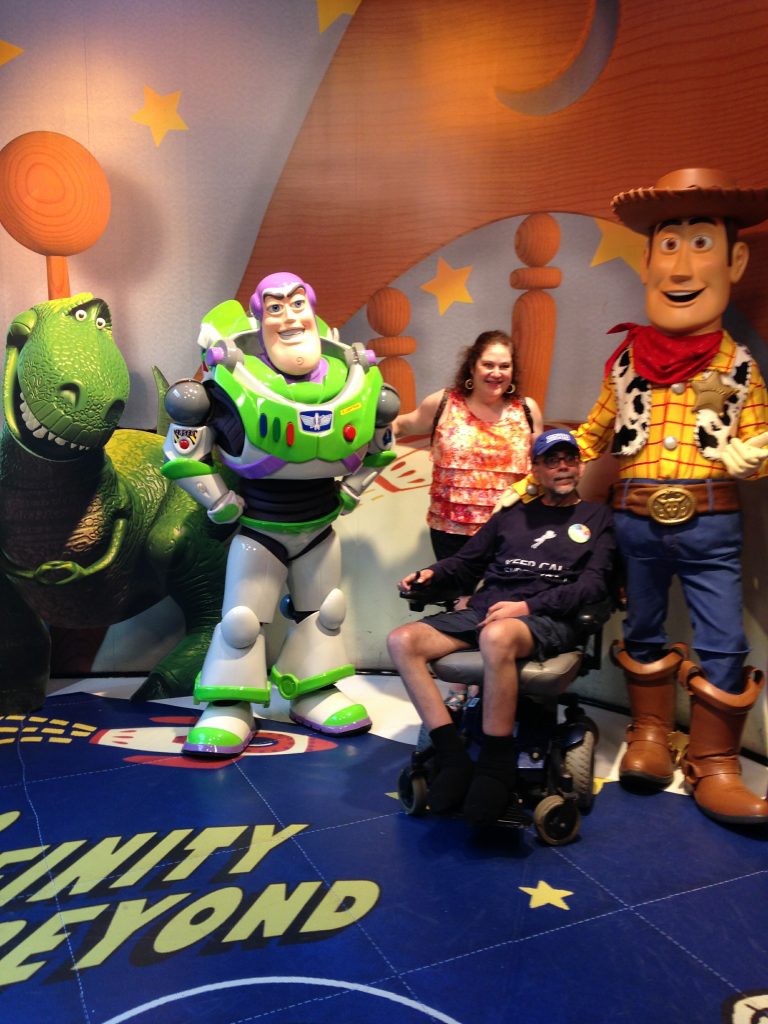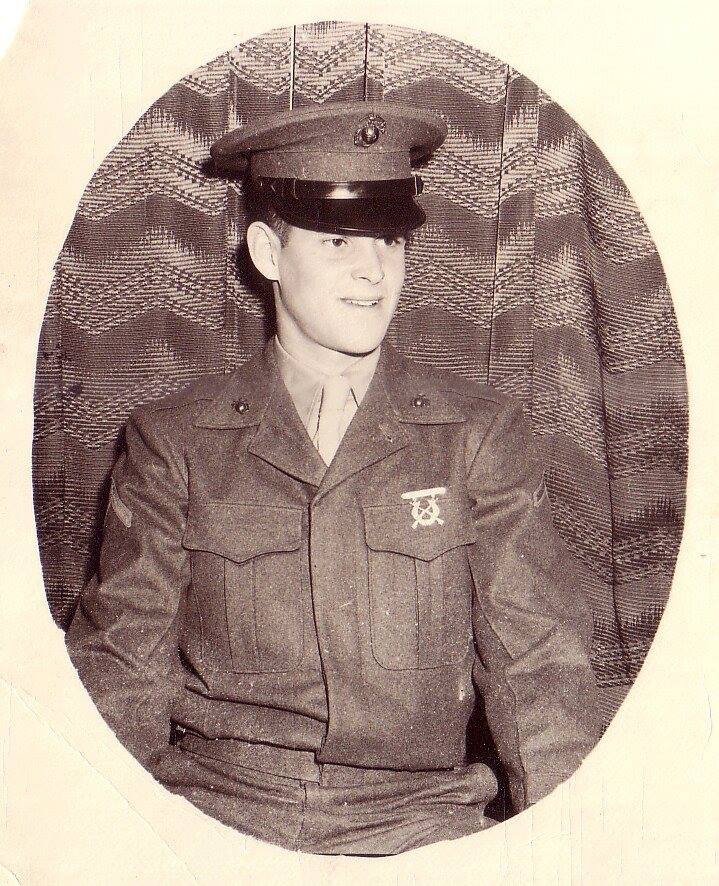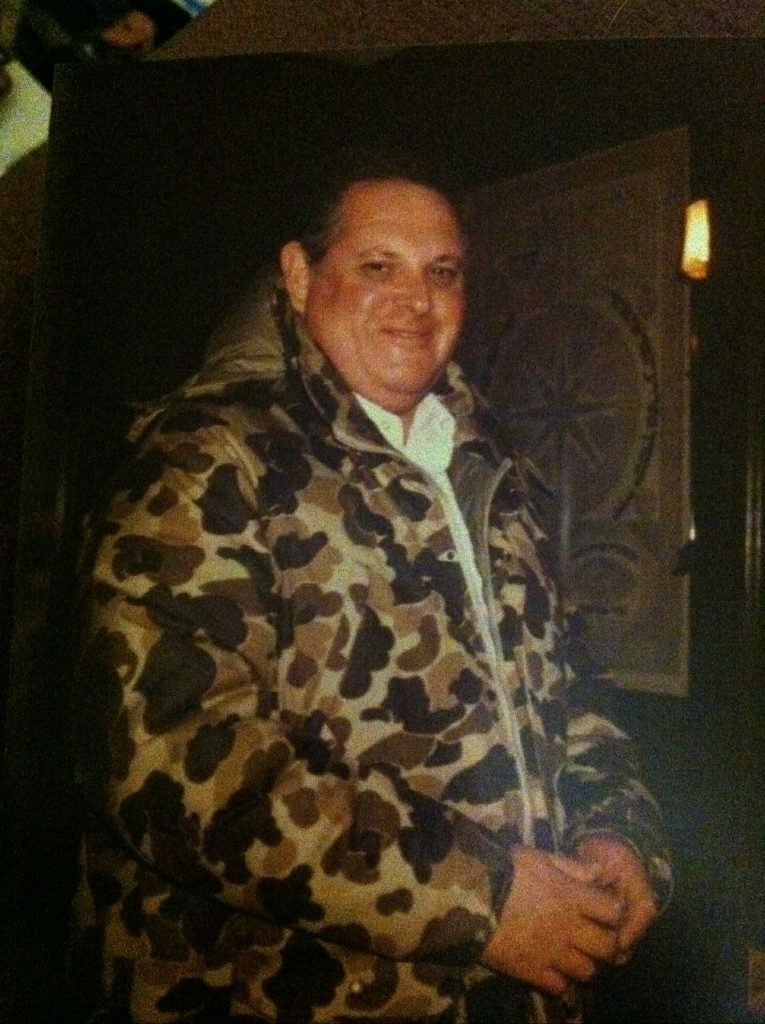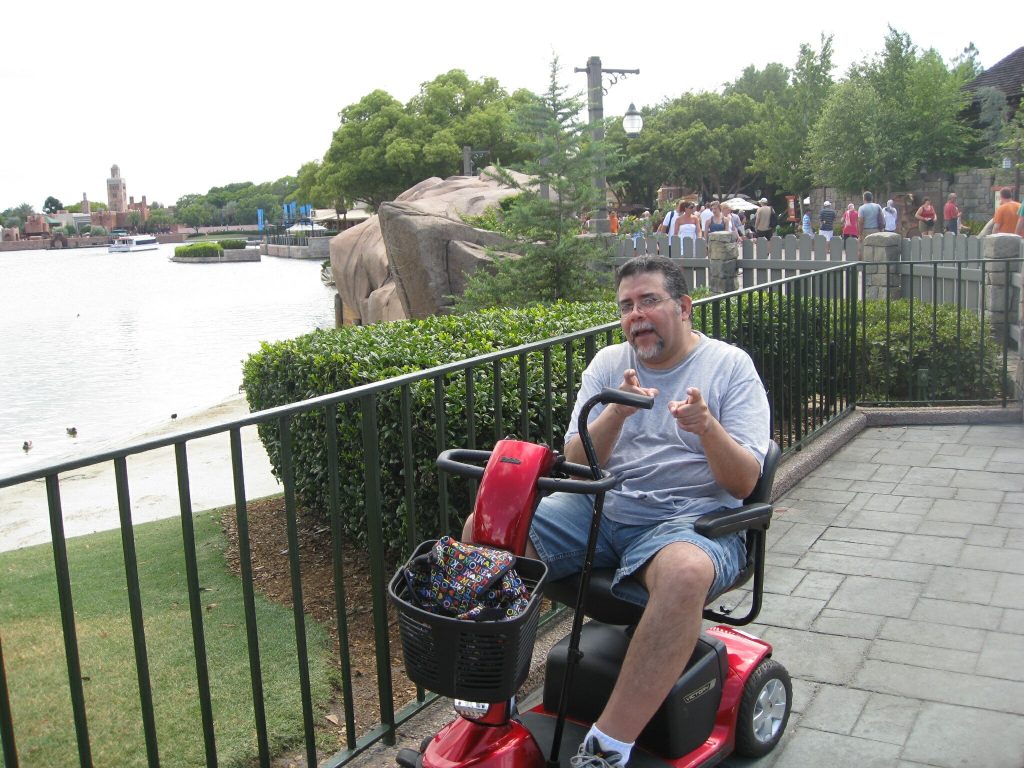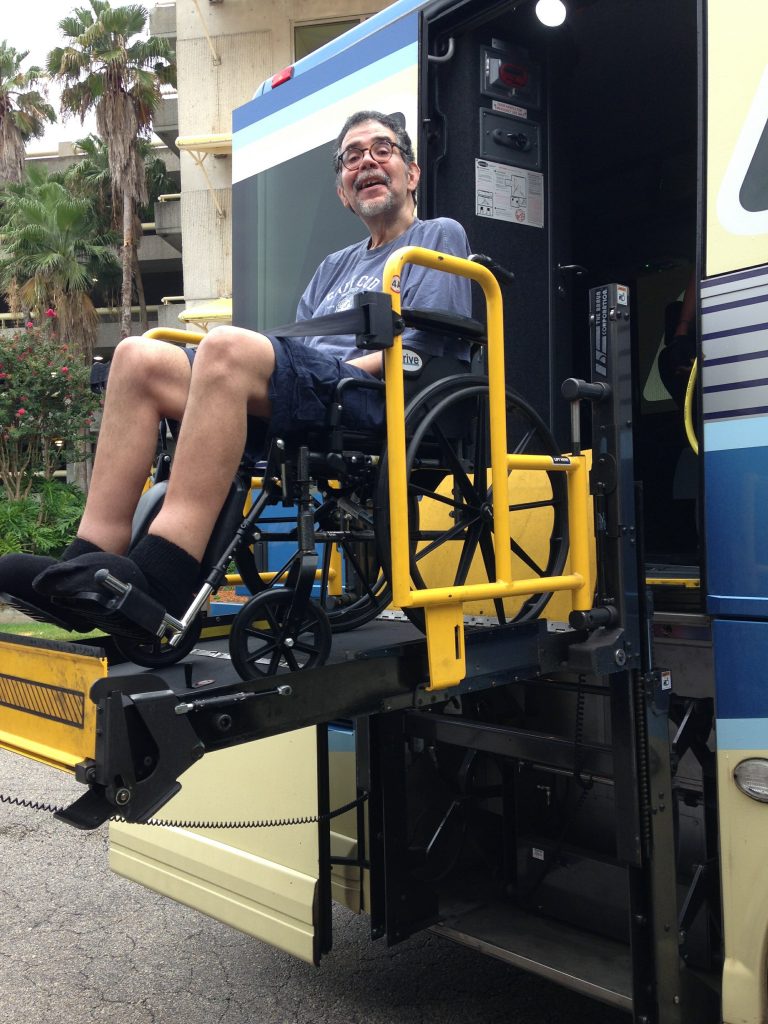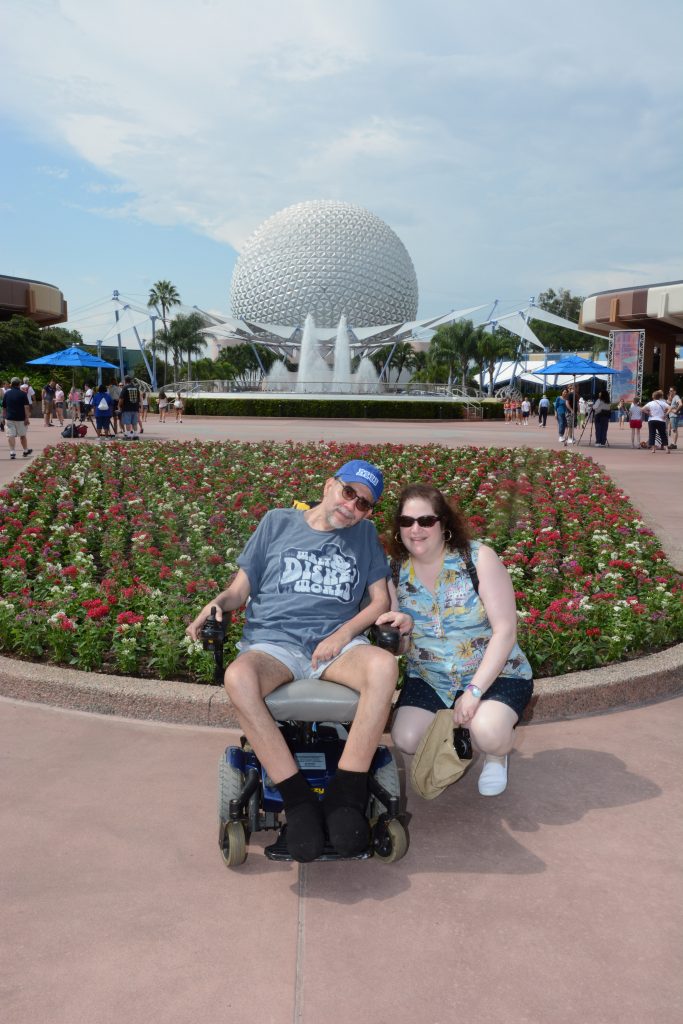Looking Back and Ahead to a New Year Through a Disney Lens
In Mary Poppins Returns, Mary Poppins said, “When you change the view from where you stood the things you view will change for good.” I believe that the past year helped me to shift my view in positive ways. I put into practice Mary Poppins’ good counsel that, “When the world turns upside down, the best thing to do is turn right along with it.” She, along with other Disney friends, helped me to find perspective, insight and positivity that I want to take with me into 2023.
As I think back to the approach of 2022, Remy from Ratatouille stands out for his very true statement that, “The only thing predictable about life is its unpredictability.” I would not have thought that last year at this time, I would spend New Year’s Eve knowing that I had upcoming surgery for breast cancer, to be followed by radiation. It was not something that I shared with many people, and I am still proud of myself for this decision and for honoring my respect for my own privacy. This year, I am relieved and thrilled that my experience with cancer is only a memory. I am so fortunate. Though I would have preferred not to have had to deal with illness, I learned that I can turn upside down with my world, and I could choose to view the experience as in a positive way, in that it helped me to find, or acknowledge, my inner strength.
Throughout my cancer treatment, I conjured a bit of Megara from Hercules. “I’m a damsel, I’m in distress, I can handle this. Have a nice day.” I never thought of myself in this way, generally perceiving myself as pretty weak, despite the bravery I was repeatedly told that I displayed during my days as a caregiver for Ben and Daddy. Also, I am not a good patient, to put it mildly, and I am terrified of even the anticipation of discomfort. Thankfully, I healed well, I attended daily radiation treatments for a month, during which time I soothed my heart and soul with daily visits to Central Park, where I fed my little buddy squirrels, was counseled and protected by cardinals, developed a good understanding with some blue jays, and watched the seasons change. On some days, I even treated myself to a Broadway matinee. Yes, Christopher Robin, I was braver than I believed and stronger than I seemed. Maybe I was smarter than I thought because I found ways to calm and energize myself, surrounded myself with a small group of people who were my champions, and gathered and worked so well with an incredible medical team. Medical leave was stressful, particularly financially, but I tried very hard to shift my view and to recognize and embrace that it was also a rare opportunity for self-care and reflection.

The truth was that I did not miss being at school. I missed some of the students and I missed my club. But, I did not miss the job or the environment. It took a while to realize that this was not a bad realization. Instead of dwelling on not wanting to teach and wanting to retire (I can’t deny that I do spend a lot of time fantasizing about this!), I was presented with a chance to think about the things that really matter to me, things that I want to do, where I have come from, where I was, and where I would dare to go. I had trouble focusing because I was caught up in my medical treatment and healing, but I realize now that I was, in many ways, setting myself up to follow different paths. Walt Disney said, “All our dreams can come true, if we have the courage to pursue them.” The upside of my health problem was getting this time to think through my dreams and how to summon the courage to pursue them. I want 2023 to be a year where I find more courage and confidence.
I have continued working on my caregiving memoir/workbook, which is now on its fourth draft and looking good. I have also taken several classes on writing for children, which is something I have wanted to do for longer than I can remember. I am playing with a few ideas and have dedicated time on a weekly basis to work on my writing. Even when I am not writing, my head is spinning with ideas, and this feeds my soul and inspires me. Whether or not my work ever gets published, I am thriving as I push myself and my creativity to grow. Although timid, I think of Quasimodo and know that each time I put pen to paper, or keystroke to keypad, “Today is a good day to try.” I aim to make 2023 a year of good days to try!
Working on behalf of caregiving kids has also been at the forefront of my goals. This year, for the first time, my club held a couple of school-wide activities to honor November’s National Caregiving Month. We invited everyone to contribute words of support and encouragement on a huge banner for our students and staff who are caregivers. The positive response and feeling of pride among caregivers AND those who were writing the kind words was truly heartwarming. We also held journaling workshops that were so popular that we will continue them throughout the school year. As I have put myself forward and concentrated on my desire to work with children, I found an opportunity with Hope Loves Company to be a leader of an online support group for children who have or had a parent or family member with ALS. I have volunteered with Hope Loves Company in the past, and I am delighted about this new role. I am also strategizing ways to expand on my ideas in a way that extends beyond my teaching days. I get nervous about the possibilities and tend to put obstacles in my own way. I know that a lot of this is confidence, and some of it is my nature as a worrier. Still, I have seen that shifting my view and putting myself out there and reaching towards the future with my goals in mind has had positive results. I must continue to summon Merlin from The Sword and the Stone, who said, “It’s up to you how far you’ll go. If you don’t try, you’ll never know.” It is my wish and my intention to keep trying and keep moving farther in 2023.
I love Edna Mode, but I think that I will always disagree with her comment that, “I never look back, darling. It distracts from the now.” Looking back to my caregiving days helps me to offer compassionate care to my students who are caregivers and has driven me to incorporate this into my teaching and my future plans. Even as I look ahead, I remain attached to my memories and the rituals I have established to honor them. I have added to my Christmas trees with ornaments from my travels and that conjure good memories and I continue to place Ben’s favorites where he always liked and could see them easily on the tree. That feels right to me. I have written about the photo calendars I reproduce each year that contain Ben’s and my favorite photos from Walt Disney World (click here for more on that). Each year, I re-ordered the calendar, which has been a source of comfort despite leading me to wonder if it kept me too grounded in the past. I did not change the calendar from year to year because it has been something that I rely on as it is. However, this year, when I returned to the web site to place my order, I learned that the company has folded. There was that unpredictability that Remy spoke of and it sent me into a complete panic. It felt like another loss. I researched other online sites and was devastated as I tried to recreate my calendar. I realized that I was not going to be able to make an actual replica. This led me to wonder if I should, in fact, try to make a new kind of calendar with other pictures. Ultimately, I could not let go of my Ben calendar. I am not ready, but I still think that’s okay. I spent hours revisiting our photographs and the original calendar and I created a new version. In true Mary Poppins form, I decided to view this activity as a good opportunity to take the time to really look back and spend time with the memories and then, to choose photos that still strongly stand out among my memories. They made me smile. I learned that my calendar is an important ritual, but that I can also adapt, adjust and even change some of the things I do, while still maintaining my connections to the past. Sorry Edna, but looking back helps me step into the now and look ahead. Still, with the knowledge that I carry the memories and the people in my heart always, in 2023 I intend to be more present in the now, maybe even opening myself up for new romance.


Ben and I never had big New Year’s Eve celebration. I did enjoy finding a new recipe and cooking a lovely dinner for us. All that changed with ALS anyway, once Ben could not chew. Tonight, Tinker Bell and I will have a peaceful evening. Mommy home and next to her is all Tinker Bell wants on any given day. I will be thinking about the past year and the things that I want to bring with me into the new year. Ben would tell me that you “can’t spell KickASS without KASS.” I’m also thinking of his hero Buzz, who would tell me that I can go “To infinity and beyond.” I am a bit more cautious, and, always a believer in fairies and fairytales, recall Cinderella and her Fairy Godmother, who reminds me that, “Even miracles take a little time.” I can wait. I do hope 2023 is filled with some sparkles and pixie dust.

I hope that everyone has the new year they wish for, or, at least the peace and ability to find a positive view and to gracefully turn upside down with the world when necessary.









